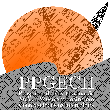Banca de QUALIFICAÇÃO: XARIO I CARLOS TAPIRAPÉ
Uma banca de QUALIFICAÇÃO de MESTRADO foi cadastrada pelo programa.DISCENTE : XARIO I CARLOS TAPIRAPÉ
DATA : 06/06/2025
HORA: 13:30
LOCAL: Sala virtual
TÍTULO:
AUTOETHNOGRAPHY AND ANCESTRY: The History of the Apyãwa People told from the ancestors who once lived my social namesPALAVRAS-CHAVES:
Autoethnography. Name Change. Indigenous Education. Apyãwa People.PÁGINAS: 113
GRANDE ÁREA: Outra
ÁREA: Ensino
RESUMO:
This research was carried out in the Tapi’itãwa Village, Urubu Branco Indigenous Land, Municipality of Confresa-MT. My main objective was to study the naming processes of the Apyãwa people, based on different characters who lived in different periods of history, using the same names. According to my research work, I will contribute to my community by interacting with the school and the wise men in order to correctly teach our true naming sequences in each Apyãwa gender. Also, through written records, the naming will be used according to each phase of their life, that is, according to the predominance in the name of each family. My greatest concern is learning how to use the sequence of names, especially in practical activities. For this reason, it is very rewarding to develop our own teaching materials according to our Apyãwa reality, while our wise men are alive, because they considered it a living library so that this Apyãwa identity can be continued and valued by the new generation. This also helps us to better understand each Apyãwa family, without using the names of other families that are passed on to each age group. In all of this work, I had to ask the wise men for help, who are trying to learn more about the names. This research therefore proposes, in a very clear way, a return to the important role in correctly learning the use of each name. The pedagogical product resulting from this research is the production of a book about Apyãwa names to be used in Apyãwa/Tapirapé schools.
MEMBROS DA BANCA:
Presidente - 45557013 - JOÃO SEVERINO FILHO
Interna - 535.535.001-15 - EUNICE DIAS DE PAULA -
Externa à Instituição - WALKÍRIA NEIVA PRAÇA - UnB



